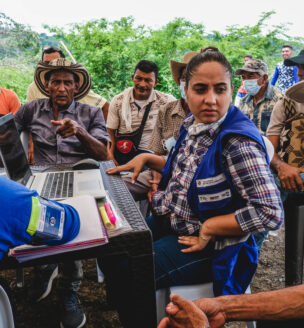In many countries, rising pressures on land have left youth increasingly landless or holding only informal or secondary rights to land, which can lead to increased conflict. In Ethiopia, for example, youth are more likely to experience land-related conflict than the general population, and in both Sierra Leone and Liberia, a lack of youth access to land may be a contributing factor to the civil wars.
Landlessness among rural youth is one of the primary causes of migration to urban areas as young people seek out alternative sources of income, and they have historically been left out of discussions on land ownership and management. However, development organizations are finding that when included, youth contribute new ideas and techniques and can assist as trusted intermediaries for boundary demarcation, modernizing agricultural practices, reinvigorating local economies.
More research is needed on the impact of land tenure and property rights on youth, but initial findings indicate that youths’ access to land can improve economic opportunities and that young people can be integral in promoting transparency and accountability. Youth often serve important roles as information bridges, encouraging their families to understand and adopt new practices in the land tenure and resource management sectors.
Photo Credit: John Dwyer / The Cloudburst Group


